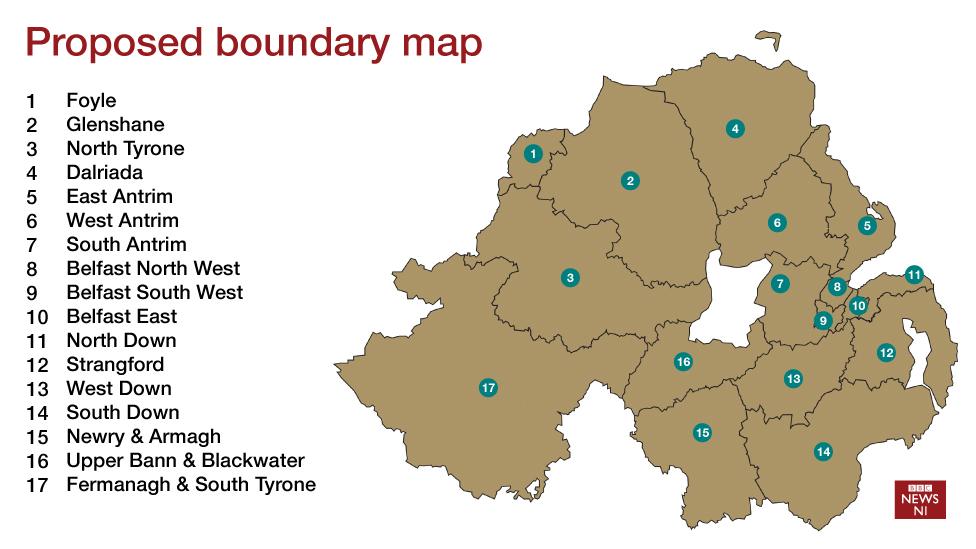Conservative MPs 'cannot support' boundary change proposals
- Published
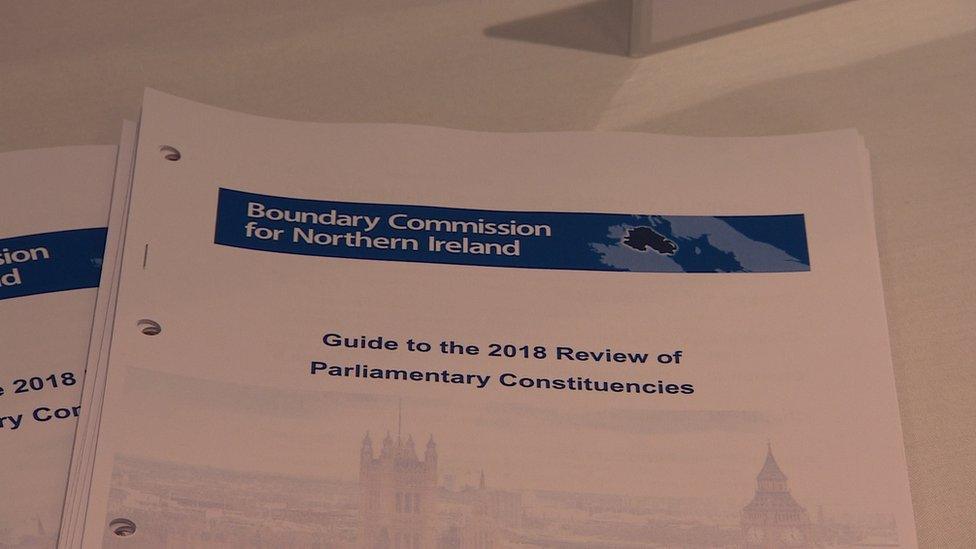
The changes would see Northern Ireland lose one of its 18 MPs
Planned electoral boundary changes could be defeated at Westminster because a number of Conservative MPs have said they will not back them, the BBC has learned.
The Boundary Commission announced the proposals in September.
The government wants to cut the number of MPs by 50 and create constituencies that are the same size.
The move would see Northern Ireland's constituencies reduced from 18 to 17, meaning the loss of one MP.
A series of Conservative MPs told the BBC's The View that they would vote against the changes, which would also see Belfast go down from four seats to three.
If the move goes ahead, it could cause difficulties for well-known politicians including Ulster Unionist MP Tom Elliott, Alasdair McDonnell of the SDLP and the DUP's deputy leader Nigel Dodds.
'Fear for seats'
Well-known seats could also disappear including Lagan Valley, West Tyrone and Mid-Ulster. There would also be new names such as Dalriada, Glenshane, and West Down.
The move is bad news for Tom Elliott. Boundary changes could see his Fermanagh and South Tyrone constituency switch from being a unionist one to a nationalist one.
He is opposed to the moves and told the BBC: "In Northern Ireland, I fear for seats for unionism."
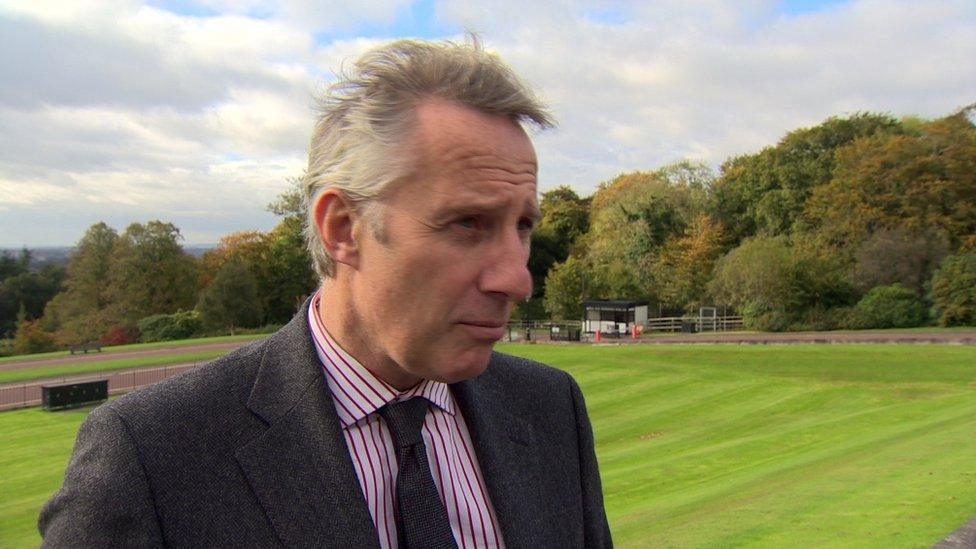
Ian Paisley described the Boundary Commission's plans as a 'dog's dinner'
The MP, who was elected in 2015 with DUP backing, added: "Quite clearly, what we have are very radical changes that are obviously slanted towards a better proposal probably for republicans and nationalists."
DUP MP Ian Paisley, whose North Antrim constituency faces considerable change, is also opposed to the plans.
He said: "The boundaries themselves, quite frankly, are a dog's dinner.
"I have looked at what they have done in County Antrim whenever all they needed to do was lose one seat in Northern Ireland. There was already a blueprint in place for 17 seats and they have this monstrosity of a carve-up that suits nobody."
Sinn Féin wonder what impact any changes will have on the future size of the assembly.
'Downgraded'
It is a point shared by the SDLP MP Alasdair McDonnell, whose South Belfast seat is disappearing
He opposes boundary changes in Belfast and said: "This would mean that not only would we lose an MP, but we would lose five assembly members come the next assembly election.
"Belfast would be downgraded, and we would create abstract places called West Antrim."
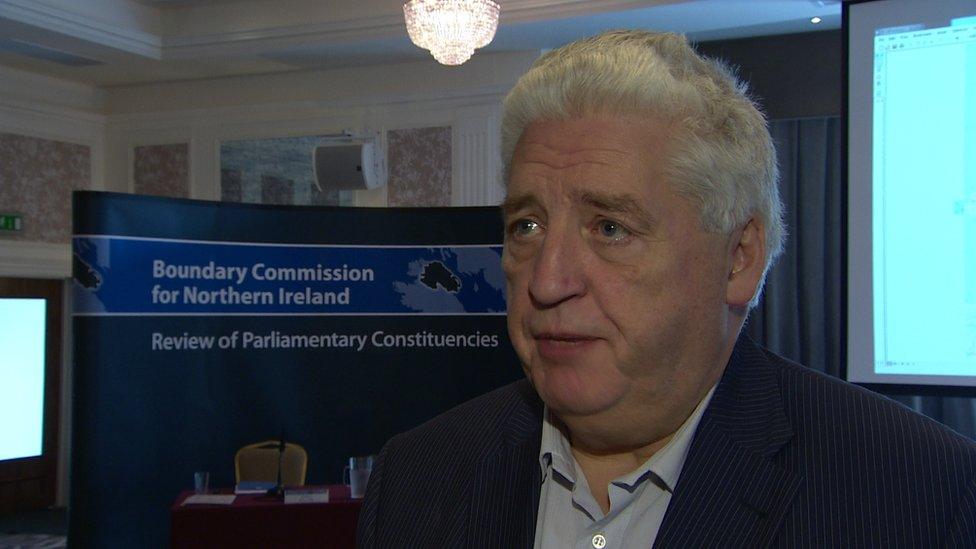
The former SDLP leader Alasdair McDonnell said he was concerned that the plans would impact the Stormont assembly in 2021
The Alliance MLA David Ford said the changes were "not ideal in any sense" and that the proposals "created difficulties in certain constituencies".
His party, however, has accepted that Belfast should have three seats rather than four.
Members of the Boundary Commission have organised a series of events across Northern Ireland so they can hear people's concerns about the changes.
The final say rests at Westminster and since the Conservatives only have a small Commons majority, it would only take a handful of Tory MPs to rebel and these plans could be in trouble.
'Gesture politics'
Conservative MP Philip Davies opposes the plan to reduce the size of the House of Commons.
He told the BBC the move was "gesture politics".
"We are getting rid of all the MEPs, all of the powers are coming back to the UK parliament after Brexit, so there is not really any justification reducing the number of MPs now," he added.
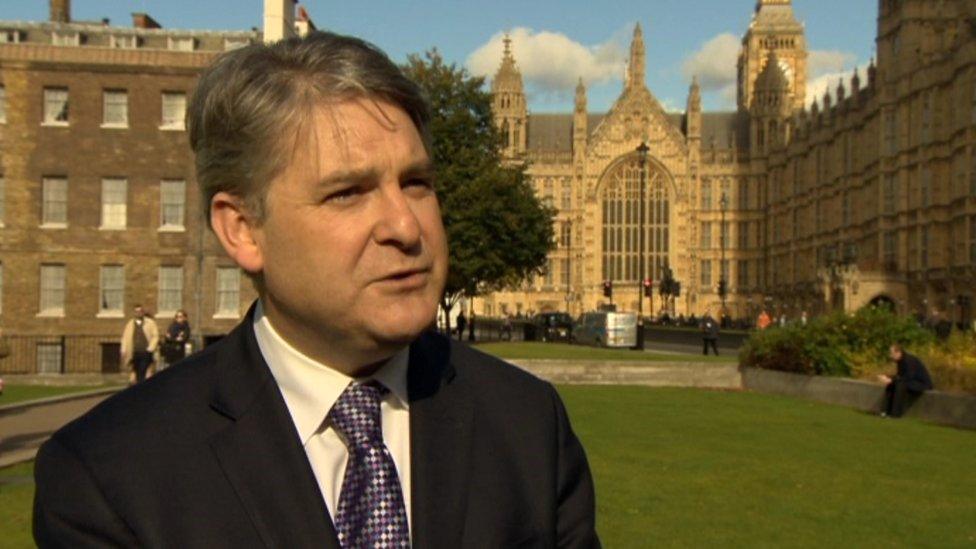
Conservative MP Philip Davies said the Brexit vote meant there was no justification to reduce the number of MPs now
Other Conservatives share his concerns, including Charles Walker, who said it is wrong to reduce the size of the Commons whilst increasing the size of the House of Lords.
The Conservative MP said: "We are talking about reducing the number of people we elect at the ballot box, whilst stuffing the House of Lords with yet more people - that simply cannot be right in a developed democracy."
Those behind the change, however, said it is right to have constituencies that are the same size and reduce the number of MPs.
Chris Skidmore, the Minister for the Constitution, told the BBC the proposals were about the "principle of fairness".
"It is about a manifesto commitment the government made," he said.
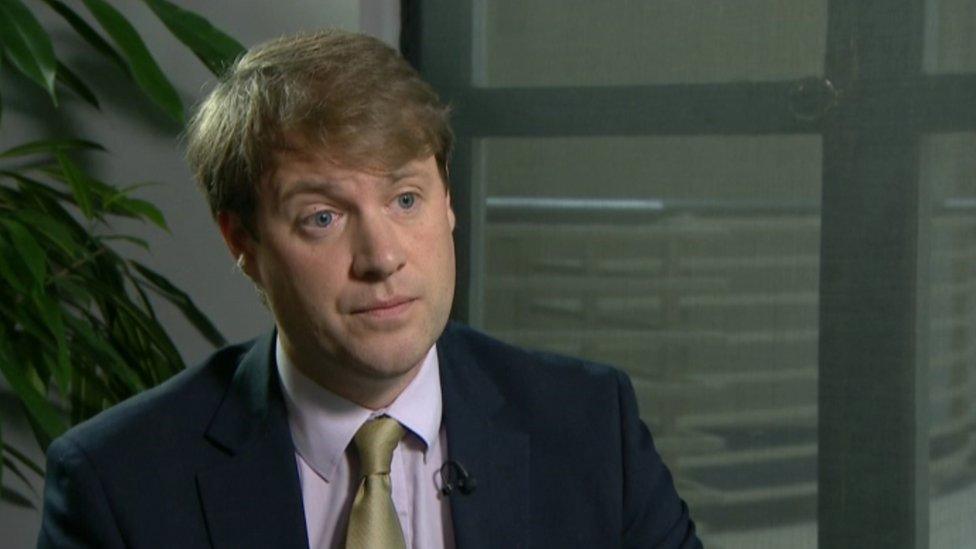
Chris Skidmore said the plans would ensure democracy was being upheld
"It is about legislation that has already been passed by parliament. This is so important - it is not about individual MPs.
"It is about ensuring we have equal-sized constituencies and our democracy is fair and represents the modern world."
Persuasion time
Other critics, such as the North Down MP Lady Hermon, suggested that the boundary changes will benefit the Conservatives and put them in power for the foreseeable future.
She said: "To give one political party a majority of between 80 and 90 seats for the indefinite future, I think that is really worrying indeed.
"It is not healthy in a democracy to have one side that knows it is going to be perpetually in government."
After the consultation process, the final boundary changes will ultimately come before parliament.
Until then, this debate has much time to run and it is clear that those seeking reform know they have much persuading to do.
This story will be broadcast on The View on BBC One NI at 22:45 BST on Thursday and will be available afterwards on the BBC iPlayer.
- Published17 October 2016
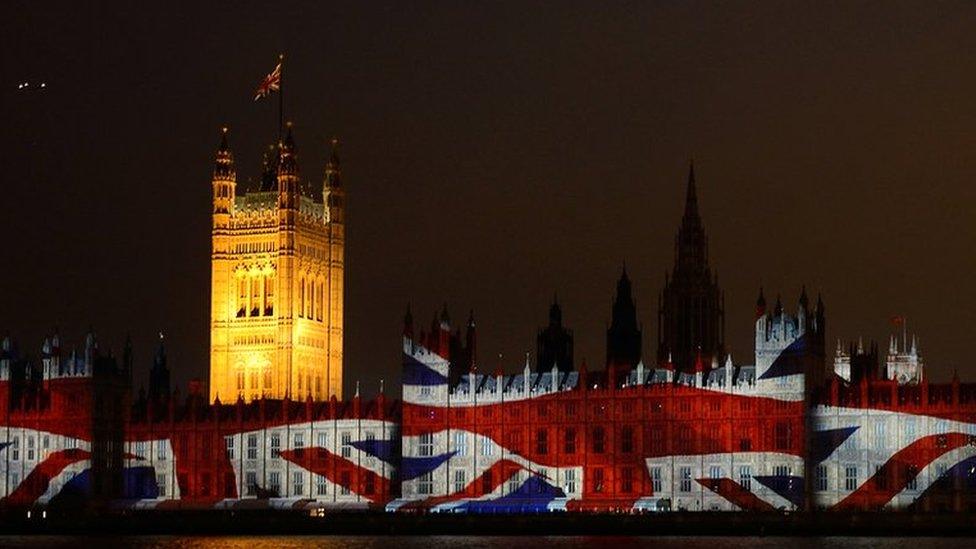
- Published6 September 2016
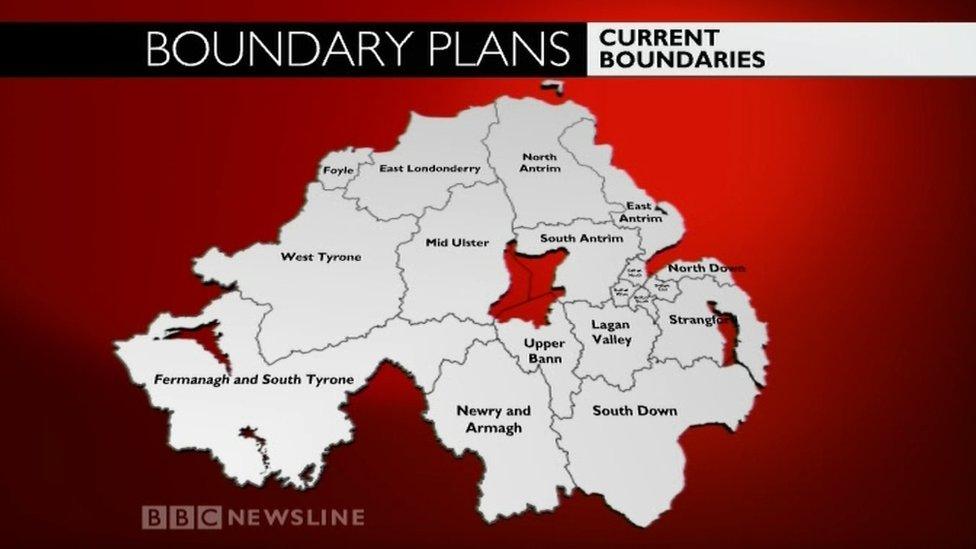
- Published6 September 2016
